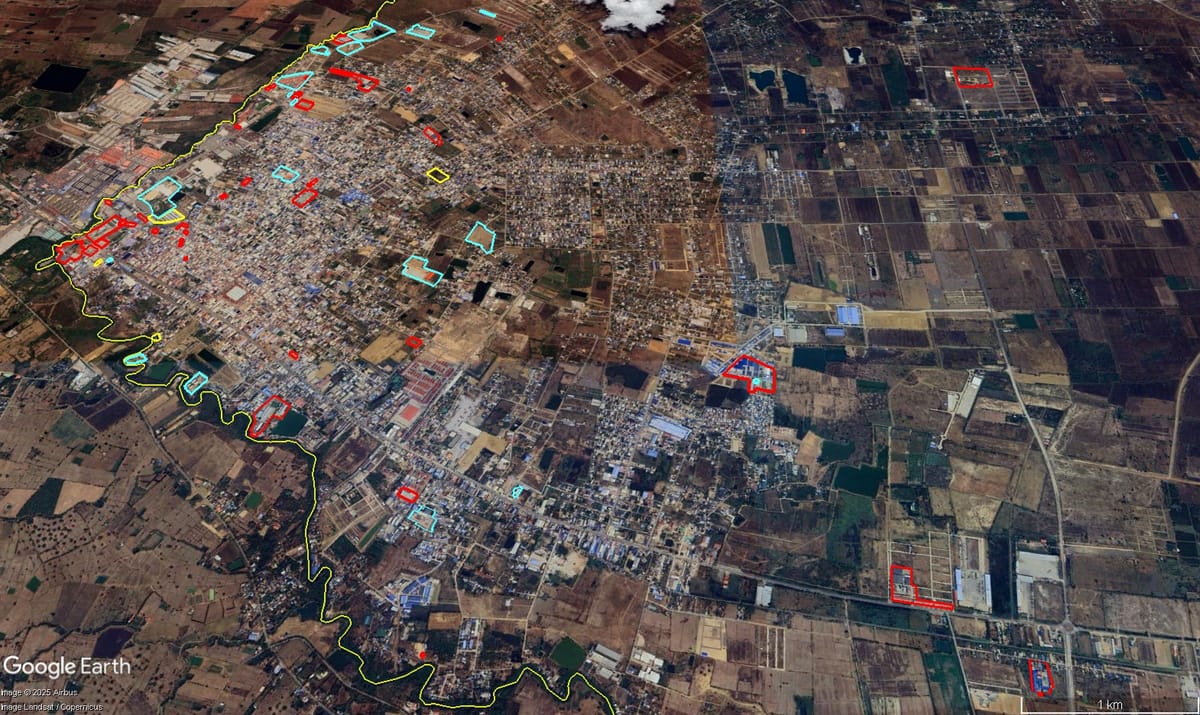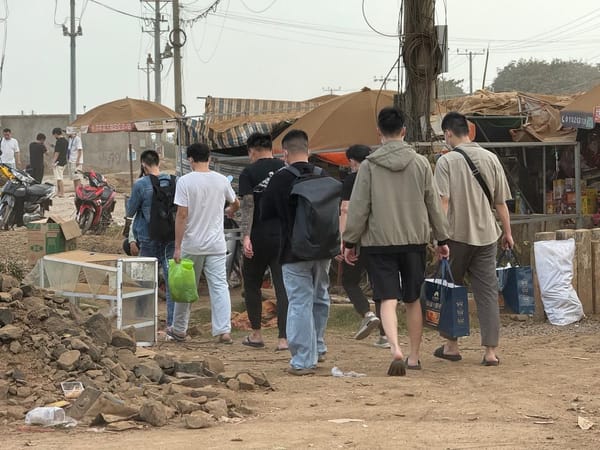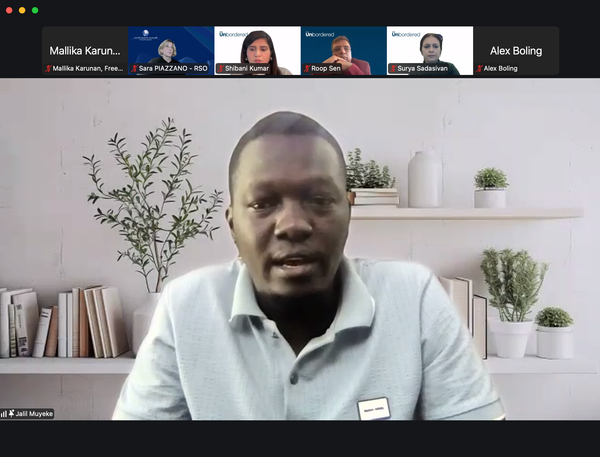Cyber Scam Monitor maps Cambodia’s scamming compounds amid new U.S. sanctions
New research spotlights the ongoing expansion of online scam compounds in Southeast Asia, a post-Brexit reduction in seafood import checks risks letting forced labour products into the UK, and a new U.S. network aims to connect trafficking survivors with free legal support.

The U.S. Department of the Treasury’s Office of Foreign Assets Control (OFAC) yesterday announced the implementation of sanctions against a large network of scam centers across Southeast Asia, including nine operations in Myanmar and ten in Cambodia. The department cited both the financial security of Americans and serious human rights abuses – including modern slavery – as the drivers of its actions, saying it would “deploy the full weight of its tools to combat organized financial crime”.
The sanctions target a scam hub in Myanmar operating under the protection of the Karen National Army, “whose leaders profit from transnational crime including cyber scam centers run with trafficked labour”, according to the Treasury, as well as scam centers in Cambodia’s Sihanoukville linked to investment scams, human trafficking, money laundering, and other criminal activities.
The news comes as think tanks and civil society groups in the region continue to highlight the growth of online scam operations and their ongoing expansion into new geographical areas. A report from the Australian Strategic Policy Institute (ASPI), released yesterday, examines the way in which cyberfraud operations have been integrated into Myanmar’s conflict economy, and explores the ruling junta’s role in permitting and facilitating scam projects which enrich its allies. The permissive landscape in Myanmar following the 2021 coup means criminal networks can act with impunity, integrating into the wartime economy through close collaboration with state authorities, it says. “As long as the Burmese junta is in an existential fight, it will be unwilling and unable to take decisive action to dismantle the extensive network of scam centers in areas under its effective control.”
And Cyber Scam Monitor has announced that its website, which documents online scam operations and associated human rights abuses in Cambodia, has been restored more than two years after it collapsed under a massive cyberattack. The group has now resumed its mission of mapping online crime sites and the actors connected to them.
One current area of focus is Poipet, a city that has received little media attention despite being overrun by online operations and transformed over the past decade by a construction boom tied to the online crime industry. Today, suspicious sites are scattered throughout the city – Cyber Scam Monitor has identified and profiled 38 sites where there is evidence of scam activities, monitored real estate agents who market office space clearly designed for online operators, and has identified hundreds of listings for new condos, office buildings, and segregated areas of casinos tailored to such activities.
These advertisements often bear tell-tale signs of scam setups – some showcase rooms fitted with rows of desks and computers, or wired with power strips for workstations, the group says. Listings frequently mention access to both Cambodian and Thai internet connections, and many are written in Thai or Bahasa Indonesian, reflecting the prevalence of operators from these countries.
Reports of trafficking, detention, and forced criminality linked to online compounds also continue to surface. This month, Malaysian media covered the case of a man who returned home after two months trapped in a Poipet scam compound, where he was subjected to physical punishment and deprived of food when he failed to meet targets. In July, Thai police arrested two men allegedly involved in “an extensive call center scam gang” at the Puli Casino, which continued to hold a valid casino license even after nine Thai nationals escaped in 2023.
Deaths in Cambodia’s online compounds are disturbingly common. Many result from falls from high floors, while others involve people found dead in their rooms, often reported as suicides, overdoses, or heart attacks. Some have been murdered or fatally injured through beatings and torture.
This year alone has seen multiple raids on scam compounds, building on sporadic enforcement actions in previous years, yet the growth of the online industry has entirely transformed the city. While the government has consistently pushed back against reports documenting the expansion of scam operations, and stressed its commitment to tackling the issue, major new compounds have emerged in and around Poipet, including elsewhere in Banteay Meanchey Province. Property listings frequently highlight the protection derived from casino licenses, suggesting such sites are actively marketed to online operators as secure from law enforcement. Alarmingly, Cyber Scam Monitor has uncovered past and present links between Banteay Meanchey’s provincial government, police, and military officials, and several companies holding these casino licenses.
Here’s a roundup of other noteworthy news and initiatives:
The Environmental Justice Foundation (EJF) has released a new report and film warning that the UK’s drastic reduction in seafood import checks since Brexit risks allowing products tied to illegal fishing, forced labour, and other abuses onto the market. EJF urges the UK Government to strengthen oversight and adopt transparency measures to block tainted seafood and safeguard both human rights and marine ecosystems.
The National Center for Missing & Exploited Children (NCMEC) in the U.S. has launched the Backpage Survivor Remission Network to connect trafficking survivors advertised on Backpage.com or CityXGuide with free legal support in filing federal compensation claims. Through its network of law firms, NCMEC helps survivors navigate eligibility, documentation, and the remission process at no cost.
Victims in Eldoret, Kenya, have testified before lawmakers after being deceived into selling their kidneys for as little as Ksh 50,000 (US$390), with brokers using fake documents to enable illegal transplants. The investigation has implicated the Mediheal Group of Hospitals and others in a coordinated organ trafficking scheme involving foreign recipients and corruption linked to the defunct National Health Insurance Fund.
The Danish Institute for Human Rights has published a briefing on mandatory human rights due diligence (MHRDD) laws, outlining key design features, legislative approaches, and practical considerations for policymakers. The note compares existing laws in Europe and highlights how MHRDD can help align national frameworks with international human rights standards while promoting accountability and responsible business conduct.
A new CSIS analysis has found that the Uyghur Forced Labor Prevention Act has prompted significant supply-chain shifts and trade enforcement actions – but recent declines in detentions and stalled Entity List updates risk undermining its impact. The report recommends strengthening CBP enforcement, expanding the Entity List, enhancing coordination with trade partners, and requiring due diligence down to raw materials to ensure goods linked to forced labour in Xinjiang are effectively excluded from U.S. and allied markets.
And the Bureau of Investigative Journalism (TBIJ), with support from the Pulitzer Center, has uncovered evidence that global brands including Vans, The North Face, and Timberland may be skirting the law by sourcing through Vietnamese factories supplied with parts from Chinese plants tied to coerced Uyghur labour. The findings highlight the ways in which companies continue to profit from forced labour despite import bans, underscoring CSIS’s call for stronger enforcement and international coordination.
The Coalition for Human Rights in Development will launch its new report, “KfW: Irresponsible Banking”, at a webinar on 10 September. The report, endorsed by 20 civil society groups, details how projects by KfW – Germany’s public development bank – are imposed without consultation and linked to threats against community members who raise concerns.




